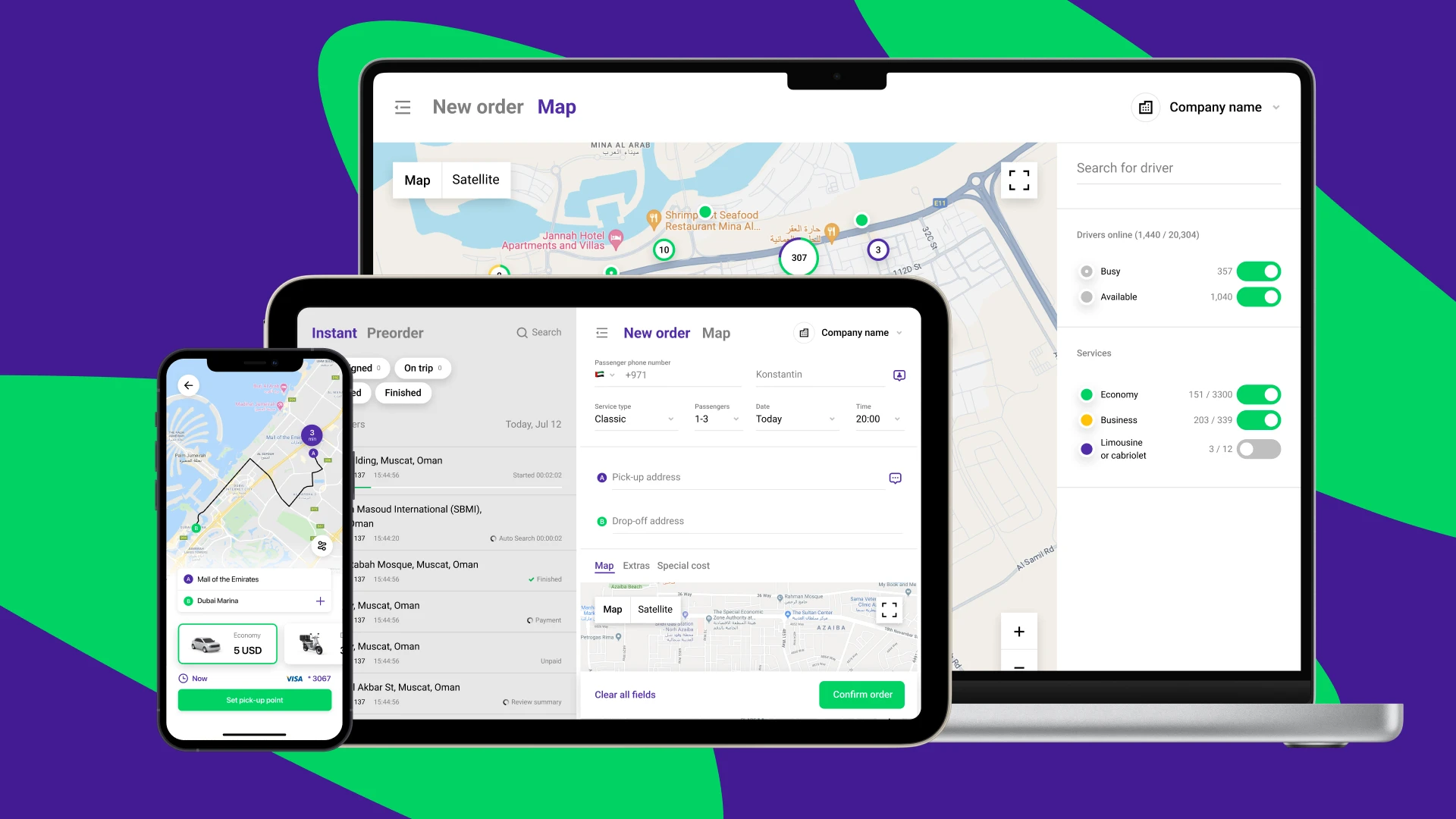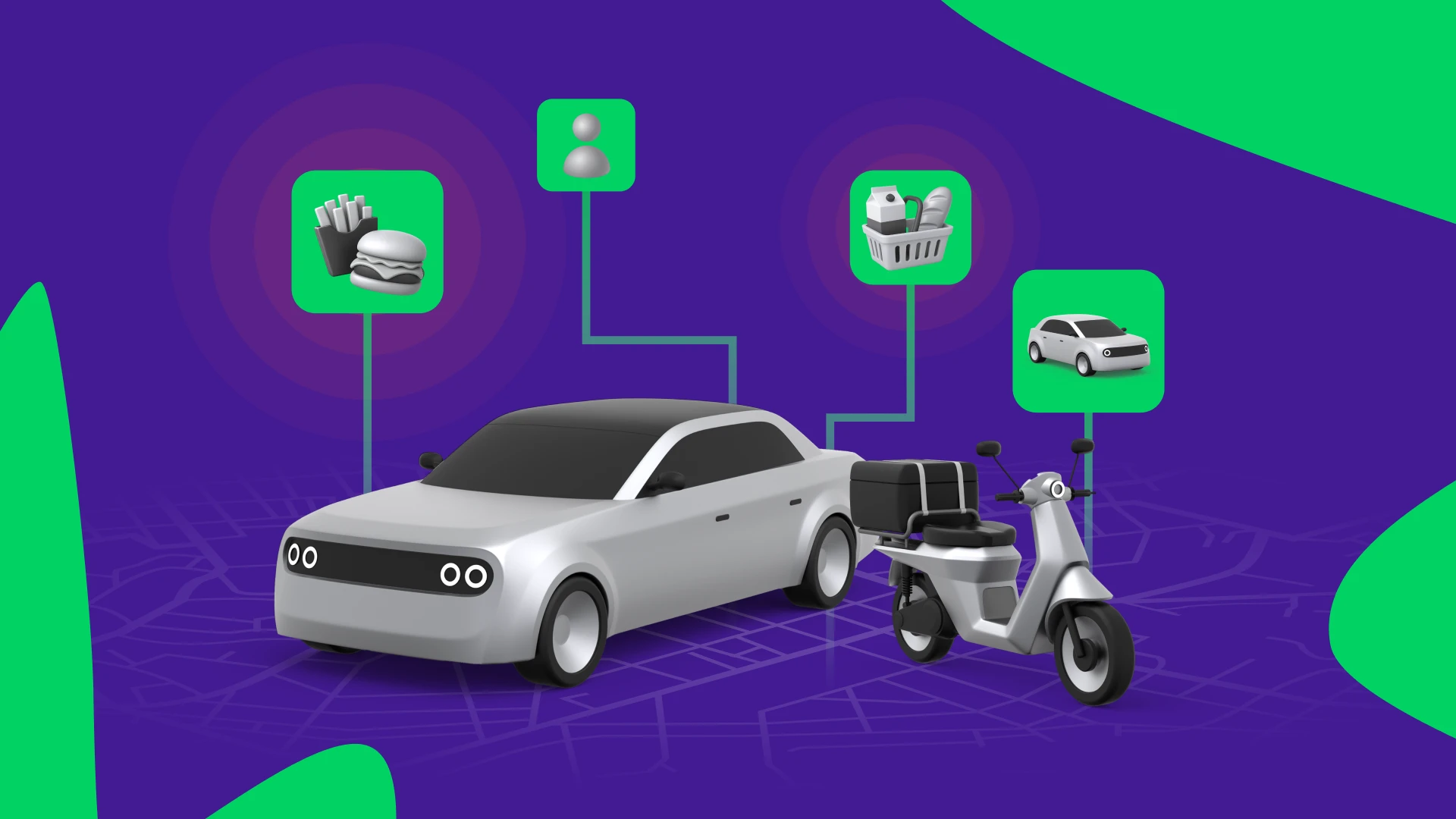
Top Custom Development Software Companies for Mobility, Delivery & On‑Demand Services

There are two main approaches to choosing the right technology for your mobility, delivery, or on-demand business:
- Custom software development
- Ready-made SaaS platforms
Each approach has its strengths and weaknesses depending on your business goals, budget, and timeline.
Custom development gives you full control and flexibility but comes with higher upfront costs, a longer build time, and a lot of post-launch expenses: you need a strong tech background or in-house developers to maintain and update the software you bought.
SaaS platforms, on the other hand, let you launch quickly with lower initial investment and offer ongoing maintenance and feature updates. However, you're limited by what the platform offers and can rarely add any feature you want.
To help you decide which path fits your business best, here’s a side-by-side comparison:
Custom Development vs. SaaS Platforms
Feature | Custom Software Development | SaaS (Software as a Service) Platforms |
Approach | Built from scratch or heavily customized for your specific needs | Ready-made software, white-labeled and configured for your brand |
Speed to Launch | ❌ Slow, typically takes months to develop | ✅ Fast, launch in weeks |
Maintenance | ❌ Your responsibility or paid monthly (4x of SaaS monthly cost) | ✅ Included & handled by the SaaS provider |
Feature updates | ❌ Your responsibility or for extra cost and at irregular time intervals | ✅ Monthly for free |
Customization | ✅ Full: tailored to your exact requirements | ❌ Limited: restricted to the provider’s feature set and roadmap |
Scalability | ❌ Limited, depends on your architecture | ✅ Scalable |
User Experience (UX) | ✅ Custom and designed as needed | ✅ Tested and proven on multiple cases |
Best For | Complex and large-scale fleet-based companies, or highly unique businesses | Small to mid-sized or fast-moving companies |
Stability | ❌ Limited, depends on your architecture and maintenance | 99.98% |
Demo availability | ❌ Final demo unavailable | ✅ Free demo and 14-day trial |
Here’s a recap of the top custom development software companies and some top ready-made SaaS solutions for mobility, delivery, and on‑demand services.
Top Custom Development Software Companies for Mobility, Delivery & On‑Demand Services
1. Onde
Onde is a leading SaaS platform designed specifically for ride-hailing, taxi, delivery, and on-demand businesses. It's often chosen by growing ride-hailing companies aiming to scale operations efficiently while maintaining full brand control. Onde offers white-label iOS, Android, and web apps that allow you to enter the market in weeks.
Main features:
- White-label branding: fully tagged with logos/colors across for Customer and Driver apps
- Worldwide multilingual and map support: any language and accurate maps anywhere in the world
- Smart route order distribution: an intelligent algorithm to distribute orders between drivers and decrease idle time
- Flexible payments: supports cashless payments with multiple payment gateways and an in-app wallet
- Promotion in app stores for high rankings is included in all plans for free
- In-app promotions to boost user and driver retention
- Safety features, in-app chat, ratings & reviews for drivers and customers, referral programs
- Lifetime features updates and 24/7 support with a dedicated account manager
- AI performance analytics and reports
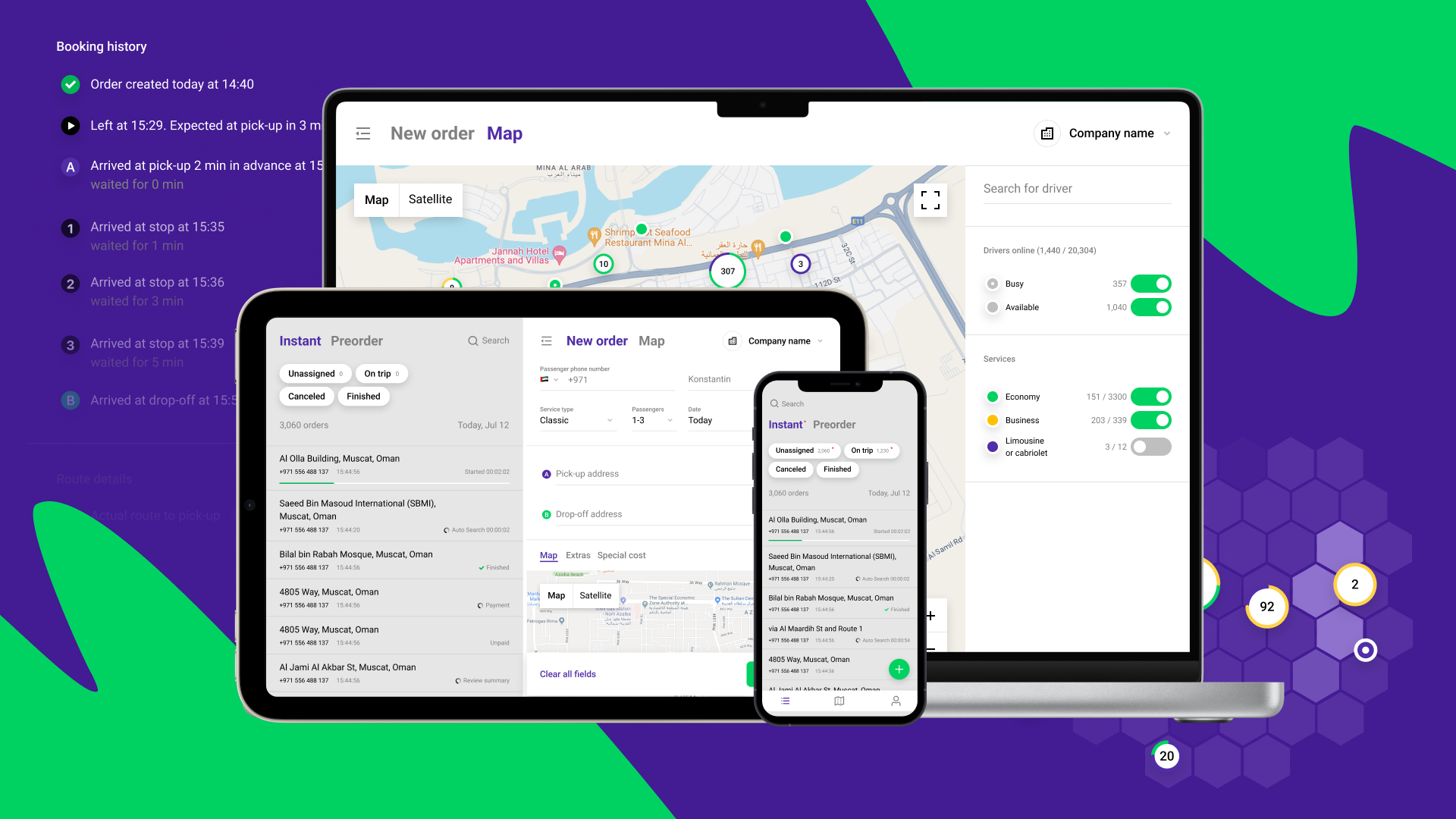
What are the pros and cons of Onde?
Pros:
- Built for millions of daily orders with 99.98% uptime
- High-quality UX and modern design across all apps
- Live support, free updates, and regular new features
- Support in launching the app for app stores - ensures immediate user flow
Cons:
- Limited deep customization outside the SaaS model
- Focused primarily on taxi, ride-hailing, and delivery, less robust for other types of on-demand services
Pricing: One-time fee, then flexible monthly % revenue share, or fixed rate with no fleet size limits. No extra charges. Complete set of apps available in each plan, along with ASO, app branding, and launching in app stores.
2. Elluminati Inc.
Elluminati Inc. is an outsourcing firm offering white‑label mobility and delivery platforms. You can choose to build apps for taxi, bike‑taxi, courier, and get a multi‑service “super‑app” solution. You can also hire developers directly for mobile apps, web apps, blockchain, and other developments.
Features include:
- White-label branding: fully tagged with logos/colors across for Customer and Driver apps
- Multi‑vertical support: ride‑hailing (car, bike), food/grocery, services booking (carwash, tutor, beautician)
- Real‑time tracking, secure payments, ratings, and admin dashboards
- Expandable into “super‑app” style platforms (multi‑service)
- Built‑in analytics for business insights (rides, customers, payment methods, etc.)
- Self-drive car rental feature
- 3 months of free service
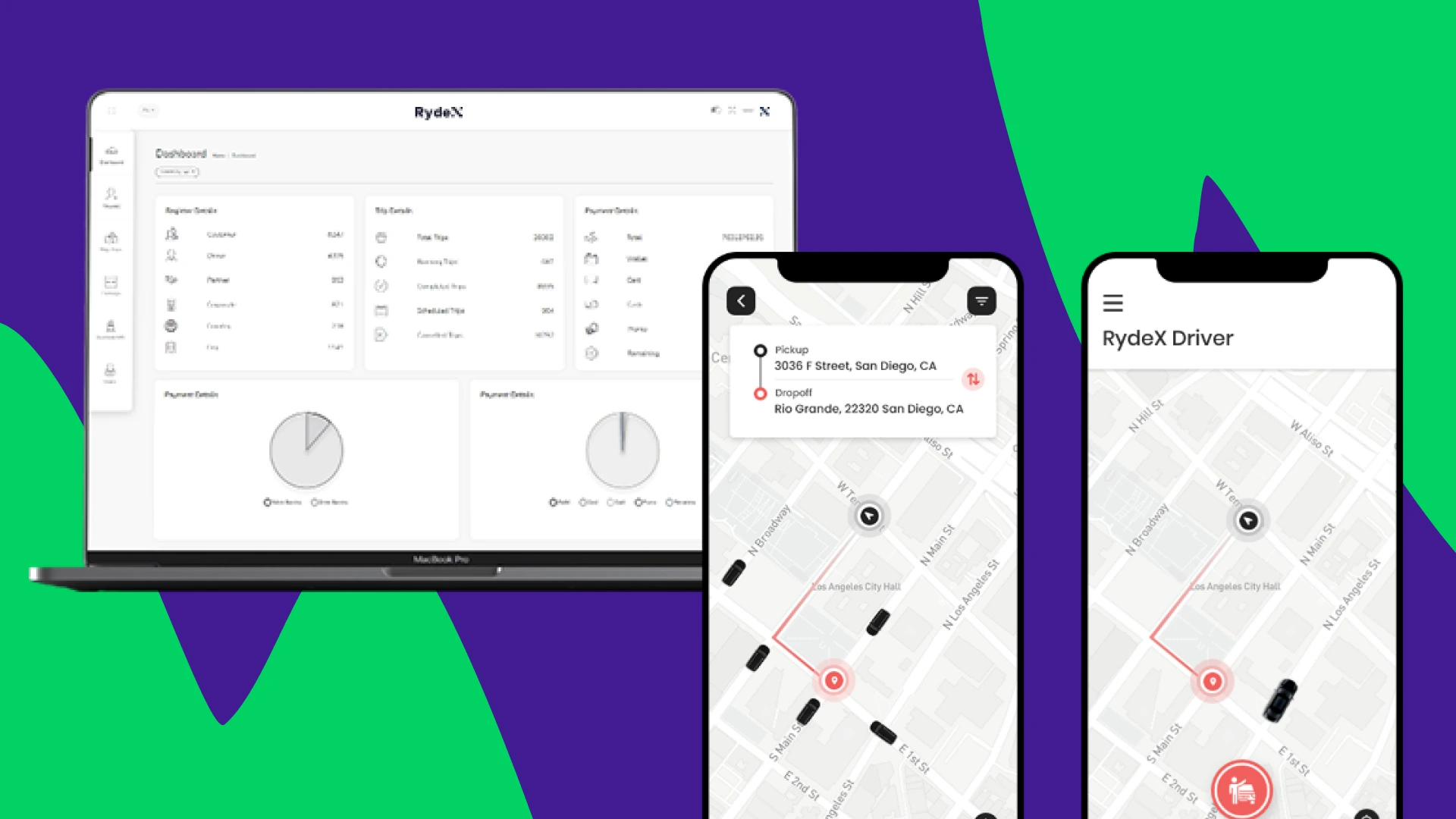
What are the pros and cons of Elluminati Inc.?
Pros:
- Relatively low base price with robust core features
- Covers multiple verticals, including very niche on-demand services
Cons:
- Further customization beyond the base package can be expensive
- No bundled marketing or App Store optimization support
- Support beyond the first 3 months and change requests are at an extra cost
- From payment gateways, only Stripe and PayPal are included
Pricing: pricing is not publicly disclosed; custom quotes are based on required verticals and features.
2. PeppyOcean
PeppyOcean is a younger, fast-growing on-demand app development agency offering ready-made clone scripts (e.g., Uber‑like, Ola‑like) that are highly customizable.
Main features:
- 3 tiers of white-label taxi/delivery clone apps to choose from
- Support for multiple on‑demand verticals (food, groceries, courier)
- Many payment gateways are included
- Advanced analytics: revenues generated on specific routes, customer order patterns, feedback, and ratings; analytics on delivery times, route efficiency, fuel usage & AI-insights
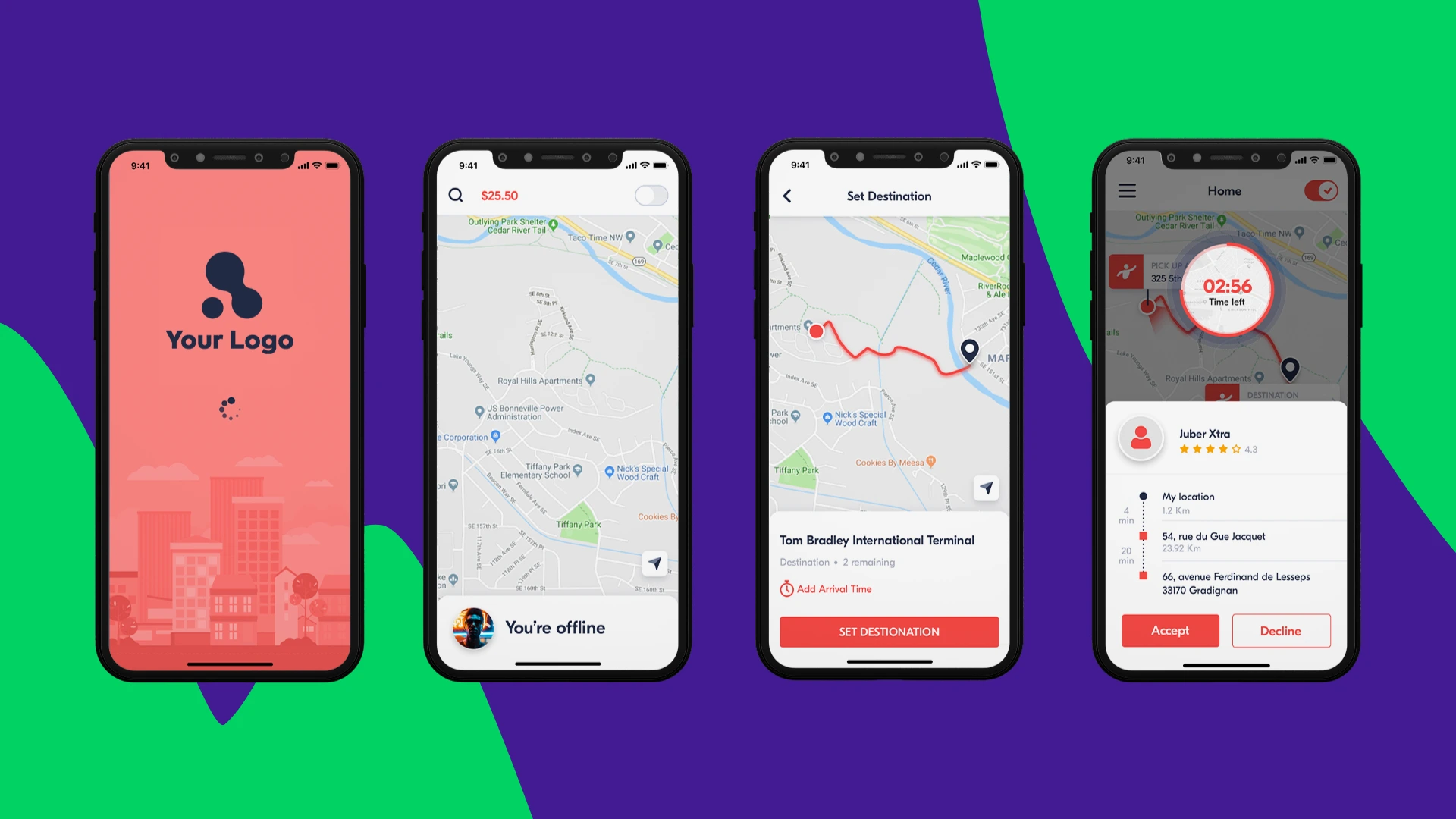
What are the pros and cons of PeppyOcean?
Pros:
- Highly customizable white‑label solutions
- Tiered options to suit speed versus customization needs
Cons:
- Only 3 free months of support are included; then you will be charged $15 per hour
- All customization and updates for extra pay
- No ongoing marketing or App Store optimization included
- No division by zones available (charging customers according to zones is not possible)
- No information on the stability of the platform and its performance during peak times
Pricing: Not openly listed; consists of base packages + any requested features at extra cost.
3. TaxiAppz (by NPLUSTechnologies)
TaxiAppz is a white-label, customizable solution made by an outsourced company, NPLUSTechnologies, that provides solutions by use case. TaxiAppz focuses on its dispatch system but also offers native apps for iOS and Android.
Main features:
- White‑label mobile apps (iOS/Android) and web dispatcher
- GPS tracking, multiple payment support, user and driver feedback, and an admin panel
- Analytics dashboards: bookings, payments, user feedback, driver performance
- Last-mile delivery software system
- Chatbots, virtual assistants, and voice commands for voice-based booking
- Assistance with hosting the application on your server and uploading the mobile app to app stores, however, no ASO included
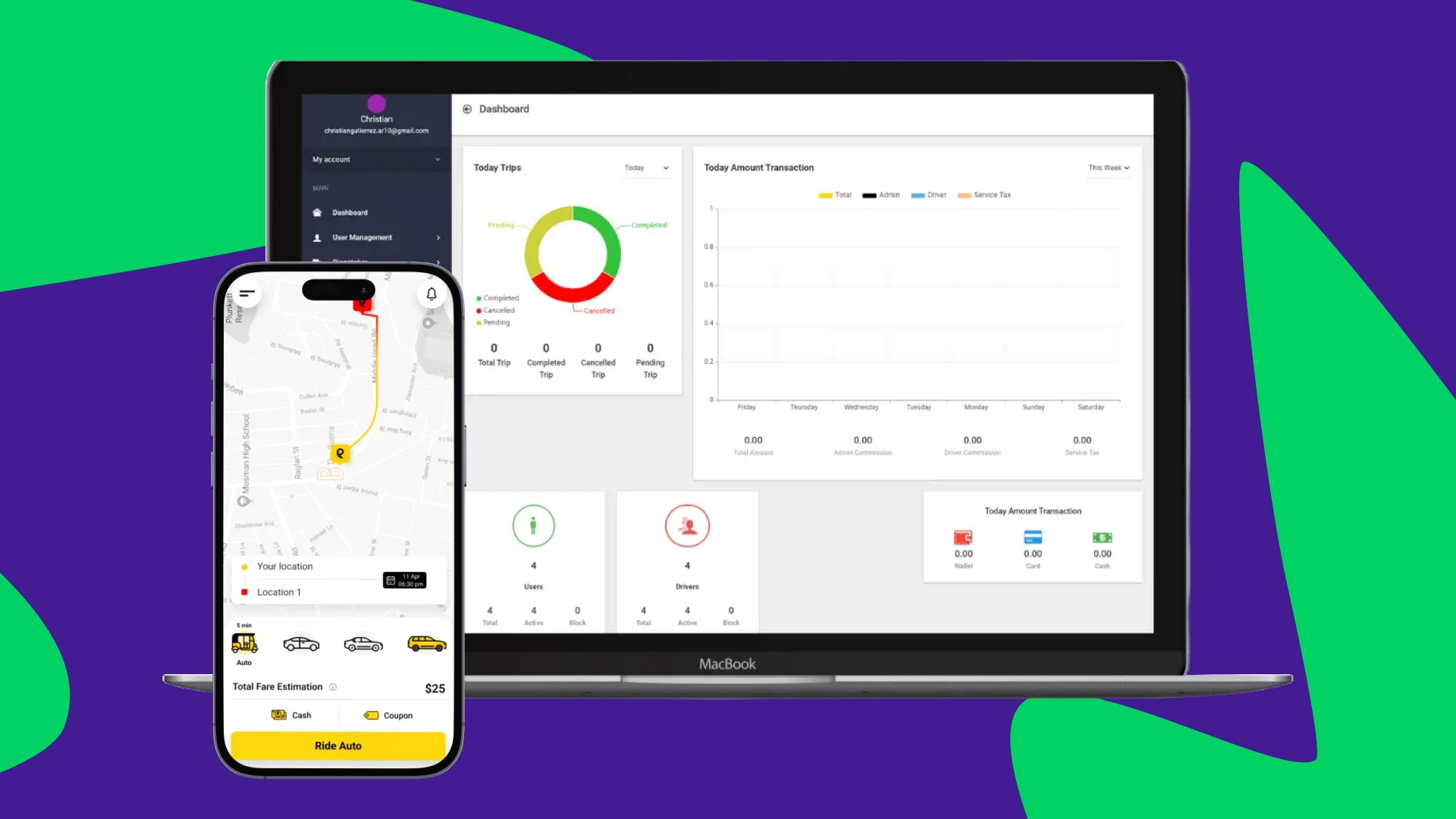
What are the pros and cons of TaxiAppz?
Pros:
- Fast time-to-market: deployment as quick as 5 days; ideal for rapid MVP or taxi fleet digital launch
- Essential features packaged in the base version
- Full source code access: enables deep customization, offline changes, or enterprise integration
Cons:
- Users note privacy and security concerns
- No marketing support and ASO included in app launch
- Own server is required for hosting the apps
Pricing: pricing is not publicly disclosed
4. Apporio Infolabs
Apporio Infolabs develops ready-made clone software (e.g., Apporio Taxi) for on-demand ride‑hailing and delivery services on request. The company serves startups and smaller taxi businesses transitioning to app‑based operations.
Main features:
- Uber‑style clone app (Customer/Driver) with admin dashboard and analytics heat‑maps
- White-label branding is available for an extra cost as part of customization
- Modules: GPS, dynamic fare, rating systems, driver reports, dispatch dashboard
- Business analytics such as payment information, booking details, user reviews, and more
- Super App development is available
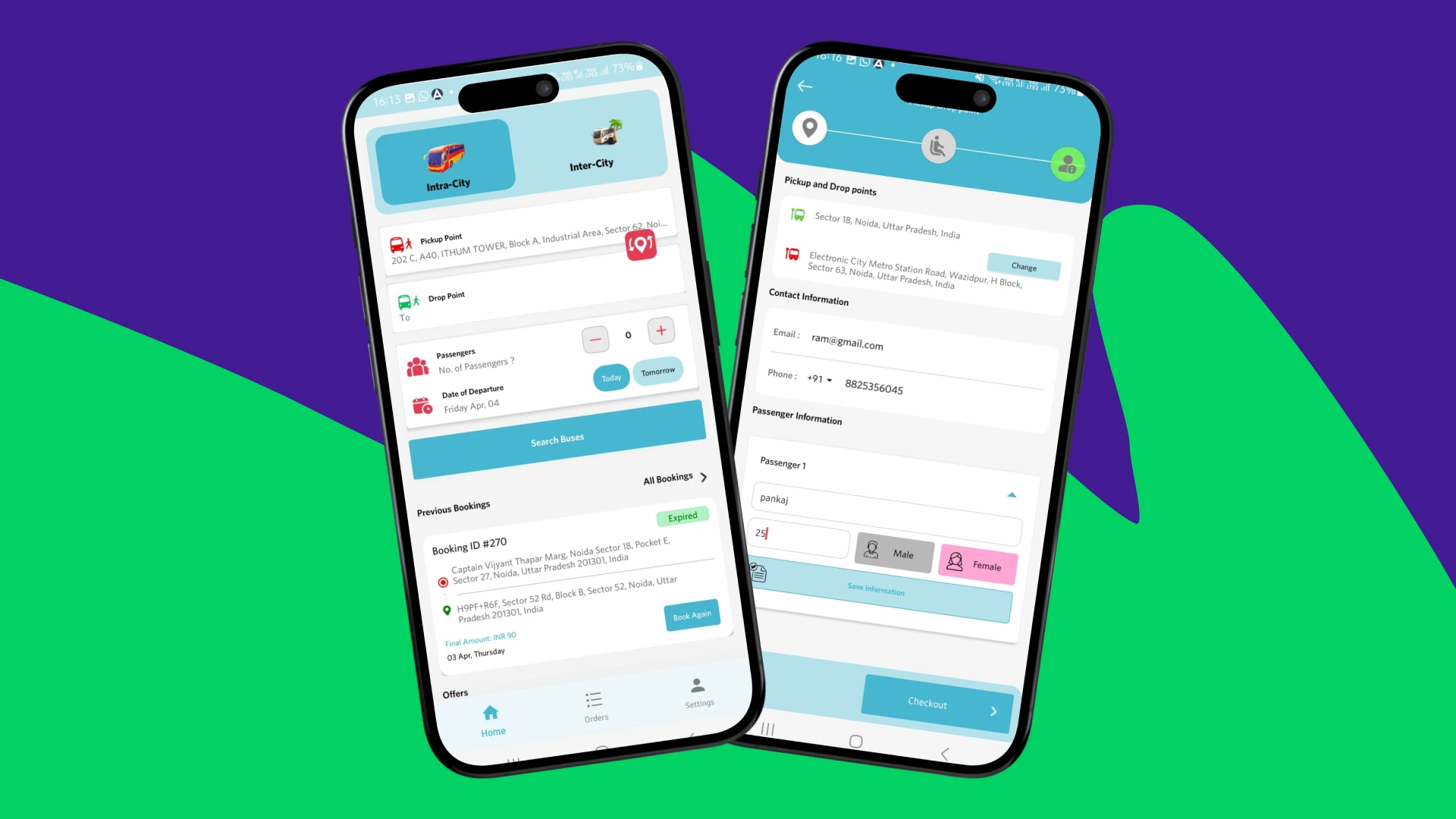
What are the pros and cons of Apporio Infolabs?
Pros:
- Extensive marketing support at extra cost
- Multiple payment gateways for cashless payments
Cons:
- Numerous negative reviews report buggy delivery, lack of accountability, poor customer support, and failed project completions even years later
- Software updates are only provided on request and at additional costs
Pricing: pricing is not publicly disclosed
5. Mobility Infotech
Mobility Infotech is a more recent entrant (founded ~2021) specializing in mobility and logistics apps: rental, carpooling, and shuttle fleet companies, and on-demand services for businesses of various sizes.
Main features:
- White-label apps for customers, drivers, operators, and merchants
- Comprehensive mobility platform including ride‑share, carpool apps, fleet tools, route optimization, and real-time tracking
- Integrated App Store Optimization and Facebook analytics (in selected plans)
- Advanced AI-based performance analytics
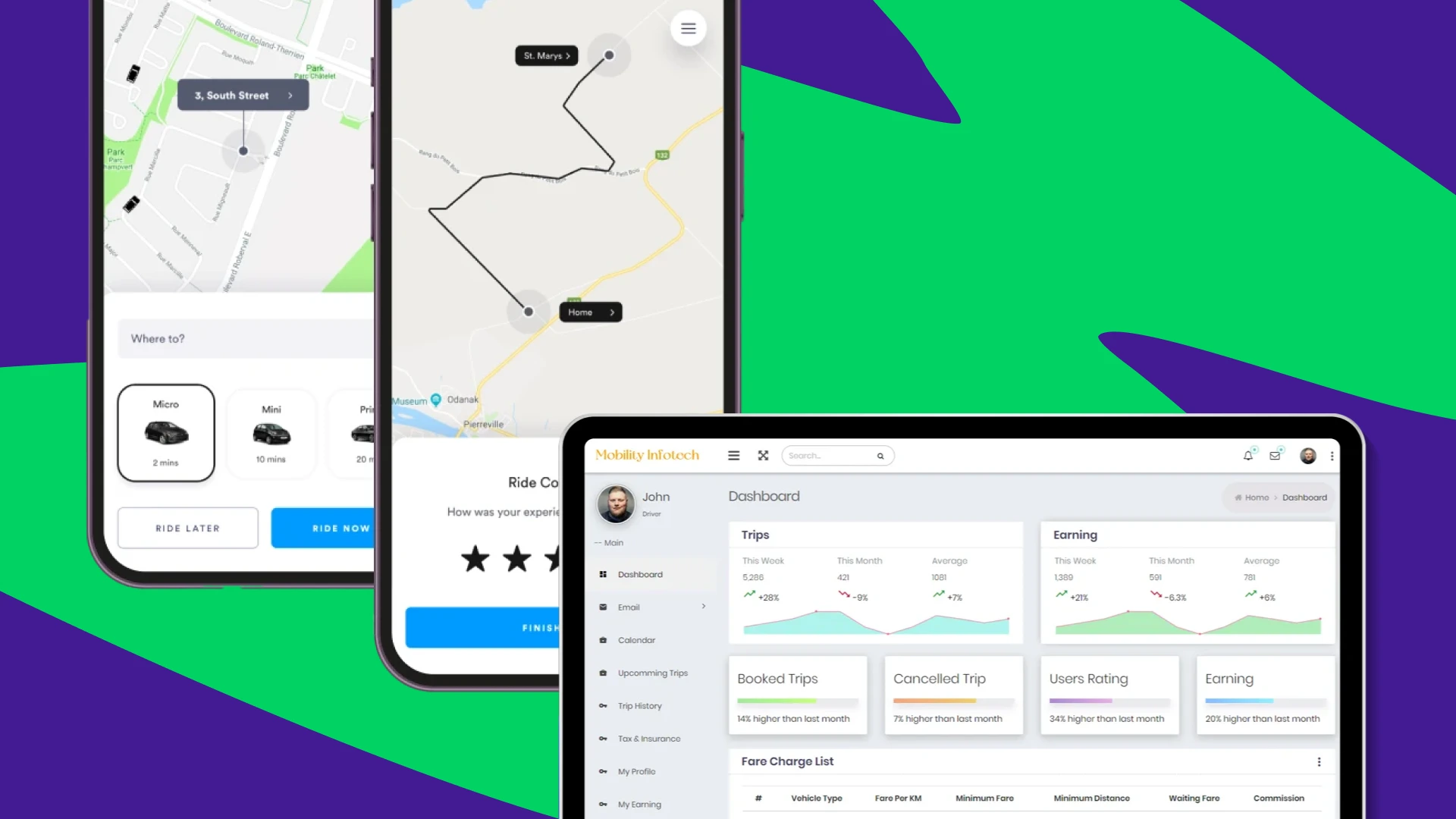
What are the pros and cons of Mobility Infotech?
Pros:
- Modern SaaS‑based architecture and ongoing updates
- Expertise in fleet and mobility beyond just taxi clones
- Merchant app for on-demand services
Cons:
- Relatively small team (~10‑50 employees) and newer on the market
- Payment gateways are available upon request
- No information on the apps’ stability
Pricing: pricing is not publicly disclosed
From custom development to Onde: the case of Stroll
Initially, Stroll hired a custom development company to build their taxi software, but the experience proved to be a failure, falling short in key areas like reliability and support. After this setback, in 2021, the founder of Stroll chose Onde as their platform. This decision marked a major shift. With Onde’s features, strong customer support, and platform stability, Stroll was finally able to scale its customer and driver base.
What to consider when choosing a mobility platform?
1. Stability and reliability
If you're aiming for fast business growth, stability is key. You can't afford:
- missed bookings,
- delays in real-time location tracking for drivers and riders.
Look for platforms that guarantee uptime of at least 98%. If this information is publicly available on their website and you don’t see complaints about crashes or outages in third-party reviews, that's a great sign. For software development companies, make sure apps are also updated and supported after you get them.
2. Your willingness to handle technical aspects
Ask yourself if you are ready to deal with things like:
- hosting and maintaining the apps
- updating features
- managing backend infrastructure
If not, then you should look for a SaaS solution that takes care of all the technical operations for you, instead of going for a custom development company.
3. Check recent reviews on trusted platforms
Before making a decision, look at recent and verified reviews on sites like G2, Capterra and Gartner Peer Insights. Reviews often reveal real-world problems, such as app crashes, bugs, or poor customer support — issues that are not always visible in marketing materials.
4. Match your platform with your business goal
If your current goal is to grow your passenger base and ride volume, choose a provider that supports app store promotion and marketing services (Meta ads, Google Ads, etc.).
5. Feature set that matches your business needs
Choose software that aligns with the specific features your business requires. You can use this guide to compare and evaluate platforms.
For example, if launching branded mobile apps is critical for you, make sure to choose a provider that includes this as a built-in feature for free.
People Also Ask
Like the article? Share it with your friends!
